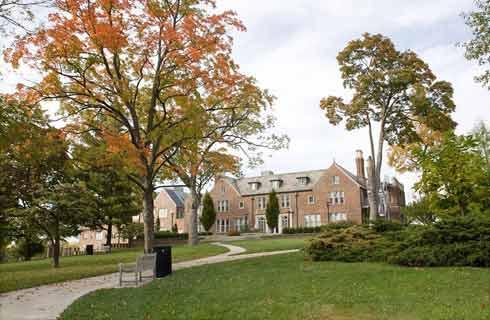Graduate Diploma in Law

学历文凭
Graduate Diploma

专业院系
School of Law and Politics

开学时间

课程时长

课程学费

国际学生入学条件
IDP—雅思考试联合主办方

雅思考试总分
- 雅思总分:
- 托福网考总分:
- 托福笔试总分:
- 其他语言考试:
CRICOS代码:
申请截止日期: 请与IDP联系 以获取详细信息。
课程简介
相关申请
 预科
预科 奖学金
奖学金 实习机会
实习机会 在校学习
在校学习 跨境学习
跨境学习 校园授课-线上开始
校园授课-线上开始 在线/远程学习
在线/远程学习
开学时间&学费
学费信息仅供参考,请与IDP联系以获取详细信息
| 开学时间 | 时长 | 学费 | 地点 |
|---|
学校排名

世界排名187
数据源:
泰晤士高等教育世界大学排名
关于卡迪夫大学

卡迪夫大学是英国一所享有盛誉的大学,位于英国四大地区之一--威尔士的首府。作为威尔士唯一的罗素集团大学,卡迪夫大学以其世界一流的研究水平、卓越的学术成就和优异的毕业生成果而闻名。卡迪夫大学在英国排名第22名(2026年《完全大学指南》),在全球排名第181名(2026年《QS世界大学排名》),提供国际认可的学位课程和支持性的学习环境。每年,卡迪夫大学都会迎来来自138个国家的6300多名国际学生,营造出一个多元化、包容的社区。卡迪夫大学高度重视就业能力,85%的国际毕业生在完成学业后不久就能找到高技能工作(2022/23年度毕业生成果报告)。卡迪夫大学在研究卓越性方面排名全英第14位,研究影响力方面排名第11位(2021年研究卓越框架),这体现了该校对创新型、面向现实世界研究的承诺。大学已投资6亿英镑用于新设施,包括最先进的教学空间、实验室和学习中心。卡迪夫大学的学生生活评价很高,连续三年在学生生活方面排名全英第二,学生会组织也位列全英第二(2025年WhatUni学生选择奖)。卡迪夫大学拥有200多个学生社团、60个体育俱乐部以及定期举办的国际学生活动,为国际学生提供了无限的参与机会。符合录取条件的国际学生将获得大学宿舍的单人住宿,且宿舍距离校园仅几步之遥。
本校相关课程

威尔士历史(MA)
学历文凭
Masters Degree (Taught)
开学日期
课程费用总额


政治与国际关系博士/硕士-威尔士
学历文凭
Ph.D.
开学日期
课程费用总额


城市设计(MA)
学历文凭
Masters Degree (Taught)
开学日期
课程费用总额


运输与规划(MSc)
学历文凭
Masters Degree (Taught)
开学日期
课程费用总额


组织工程学(MSC)
学历文凭
Masters Degree (Taught)
开学日期
课程费用总额


化学博士学位/哲学硕士-理论与计算化学
学历文凭
Ph.D.
开学日期
课程费用总额

其他相关课程

LLB (Hons) Common Law/Philosophy
 格拉斯哥大学
格拉斯哥大学泰晤士高等教育世界大学排名:84
学历文凭
Bachelor Degree with Honours
开学日期
课程费用总额


International Foundation Year (Law)
 兰卡斯特大学
兰卡斯特大学泰晤士高等教育世界大学排名:185
学历文凭
Foundation for Undergraduate
开学日期
课程费用总额


LLM International Trade and Maritime Law
 埃塞克斯大学
埃塞克斯大学泰晤士高等教育世界大学排名:339
学历文凭
Masters Degree (Taught)
开学日期
课程费用总额


LLM Law
 桑德兰大学
桑德兰大学学历文凭
Masters Degree (Taught)
开学日期
课程费用总额


理学学士和法学学士-化学
 悉尼大学
悉尼大学泰晤士高等教育世界大学排名:54
学历文凭
Dual Degree
开学日期
课程费用总额


Bachelor of Laws / Bachelor of Psychology
 伊迪斯科文大学
伊迪斯科文大学学历文凭
Dual Degree
开学日期
课程费用总额










